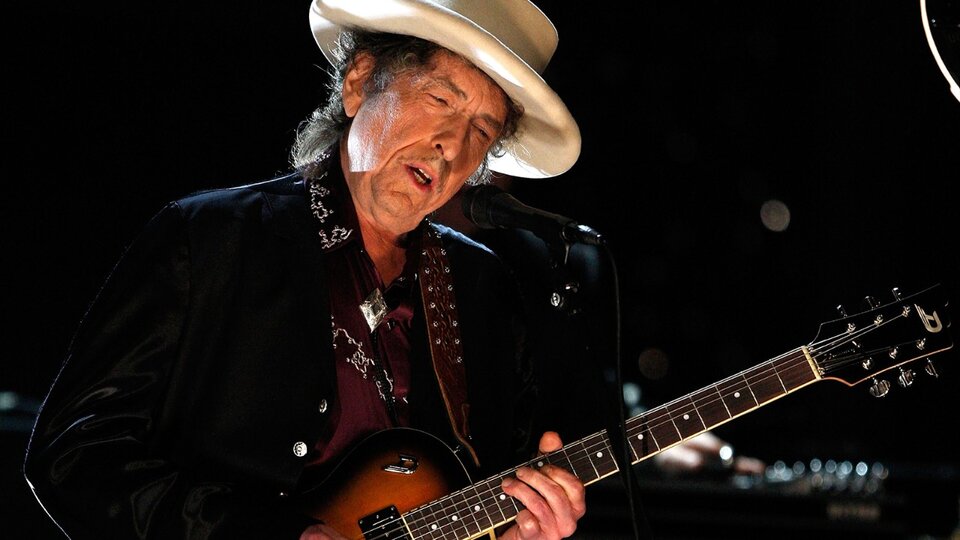
[ad_1]
In May 24 ephemeris These events that happened on a day like today in Argentina and around the world stand out:
● 1940. The French and English troops were cornered by the German army in Dunkirk, a town in France bordering on Belgium. The situation in his favor, Adolf Hitler took a decision that was still debated: he ordered the soldiers not to advance on the beach where the English and the French were unable to escape. We guess he still wanted some sort of deal with London. It is also assumed that they advised him not to give victory to less ideological Nazi officials. The planes harass the cornered troops and Great Britain takes advantage of these hours to launch Operation Dynamo. Since May 26, private ships have crossed the Channel to rescue the soldiers. More than 300,000 men are brought to England until June 2.
● 1941. Bob Dylan was born in Duluth, Minnesota. One of the most important and influential singer-songwriters comes to the world as Robert Allen Zimmerman. Popularity came to him in the early 60s, with songs like “Blowin ‘in the Wind”. He joined the protest movement and, in the middle of the decade, shocked folk purists when he started playing and recording with electric instruments. In 1966, one of his masterpieces will arrive: the double album Blonde on blonde. That year, a motorcycle accident took him away from music. He did not go on tour again until 1974. At the end of the 1970s, he converted to Christianity. The following years were not successful. In the late 1980s, he rebounded with supergroup The Traveling Wilburys, alongside Roy Orbison, George Harrison, Tom Petty and Jeff Lyne, a project interrupted by Orbison’s sudden death. In 2000, for the theme “Things have changed”, from the film Wonder boys, won the Oscar for best song. Become a legend, the Swedish Academy awarded him the Nobel Prize for Literature in 2016.
● 1966. Eric Cantona, one of the best players of his generation, was born in Marseille. He went through different teams in his country, such as Olympique de Marseille and Montpellier before arriving in England. After a year at Leeds United, he moved to Manchester United, where he played until 1997, the year of his retirement. There, he won four first division championships and became a star, for his talent and his irascible character. In 1995, he kicked a Crystal Palace fan for xenophobic cries. They gave him eight months of punishment and he has always claimed this action. Its years of splendor coincided with a bad time for the France team, which failed to qualify for the 1990 and 1994 World Cups, thus missing the World Cup.
● 1974. Duke Ellington, one of the greatest musicians in jazz history, dies in New York at the age of 75. Considered one of the greatest composers of the 20th century, he led a big band from the piano and had Billy Strayhorn as arranger. He rose to fame at the New York Cotton Club in the 1920s. Author of classics such as “Jeep’s Blues”, “Caravan” and “Satin Doll”, he also produced more complex works, such as the following Such sweet thunder, inspired by Shakespearean plays and Black, brown and beige, a collection of the history of black people in America since slavery. The centenary of his birth, in 1999, saw the award of a special Pulitzer Prize for his contributions.
● nineteen eighty one. In a plane crash that still raises doubts, the President of Ecuador, Jaime Roldós Aguilera, dies. He was 40 years old and won the 1979 elections, which ended the dictatorship in the country. The plane crashes on the hill of Huayrapungo. With Roldós his wife (sister of the future president Abdalá Bucaram), the Minister of Defense and the seven other occupants of the ship are dead. He is replaced by Vice President Osvaldo Hurtado, who ends the presidential term until 1984. The official investigation speaks of a pilot error. However, there has been speculation about an attack with the authorization of the United States for the President’s oil policy. It is also noteworthy that he was frowned upon for his progressivism during the era of the majority of right-wing dictatorships in South America.
In addition, it is Operator and Radio Operator Day, in memory of the first Morse code wireless transmission on May 24, 1848.
.
[ad_2]
Source link
 Naaju Breaking News, Live Updates, Latest Headlines, Viral News, Top Stories, Trending Topics, Videos
Naaju Breaking News, Live Updates, Latest Headlines, Viral News, Top Stories, Trending Topics, Videos